Graham Reid | | 2 min read
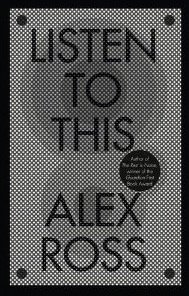
One of the many funny lines in the
profanity-strewn satirical film In the Loop came from the
character Jamie Macdonald, the senior press officer in 10 Downing
Street and the “angriest man in Scotland”.
On hearing opera he bellowed, “It's
just vowels! Subsidised, foreign fucking vowels!”
The New Yorker music critic Alex
Ross – author of the insightful and award-winning The Rest is
Noise, a free-wheeling and gossipy survey of 20th
century classical music – would doubtless enjoy the sentiment.
No purist -- although he admits to only
discovering pop music when at university – Ross brings a wide-angle
view to his music writing which in this collection of pieces (most
expanded from New Yorker columns) roams from Mozart, the late
Marian Anderson (the black contralto who voice “possessed the kind
of incandescence that no machine can capture fully”) and the
Finnish composer/conductor Esa-Pekka Salonen with the L.A.
Philharmonic to Bjork, Radiohead and Bob Dylan.
The Dylan piece raises excellent points
(critics prefer him pre-1966 because there's an untidiness and
uncategorisable quality about his subsequent career), he is excellent
on Bjork's varied and intellectually challenging music but the
Radiohead article originally written in 2001 feels dated.
The chapter Edges of Pop – short
pieces on Frank Sinatra, jazz pianist/composer Cecil Taylor and
alternative rock band Sonic Youth, and Kurt Cobain – is slight and
he is stronger in the more deeper pieces on classical music.
He quickly dismisses the shibboleths of
the classical world: if classical music is dying as so many say then
people have complained it has been doing so for more than a century;
he objects to the sensibilities which argues classical music is
sacred and which fetishises the past (“In America, the middle
classes carried the worship of the classics to a necrophiliac
extreme”); and if you want to see the monied, white audience at its
ease it isn't at the Metropolitan Opera. For a “Swiss-bank-account
display of wealth, go look at the millionaires sitting in the
skyboxes at a Billy Joel show, if security lets you”.
As with the art critic Robert Hughes,
Ross strides confidently between the halls of high art and the
bear-pit of the populist arena in opinionated, assured and concise
prose. Of Schubert's Ninth Symphony (“Schubert probably considered
it his First”) he writes: “Sketched during an 1825 trip through
the Austrian Alps, it seems to document the overcoming of morbidity,
of all Romantic fascination with death. The force of the effect is
both exhilarating and frightening . . . for all the world, it sounds
like the stamping of a man reaching for the stars”.
He employs such memorable turns of
phrase and imagery on Brahms, of whom he also observes, “you might
argue that [he] inaugurated the age of academic music – the
practice of generating works that are designed more for scholarly
dissection than for popular consumption”. He is equally informative
on the camp off-Broadway act Kiki and Herb, how recording changed the
way we hear and consume music, and of contemporary classical
composers in China. His intelligent, muscular writing makes you want
to hear the music. Or rediscover it with Ross as your guide.
Sensibly then, as he did with The
Rest is Noise, this often provocative and readable collection has
a website with audio and video samples and links here.
If the Schubert has you reaching for
the stars, Kiki and Herb (aka Justin Bond and Kenny Mellman) will
have you rolling on the floor with laughter.

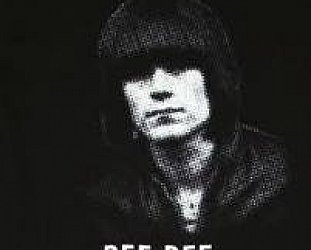
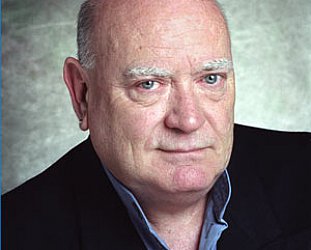
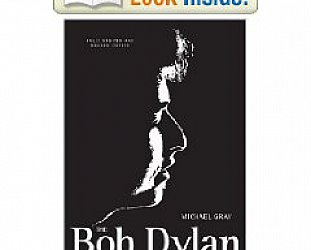
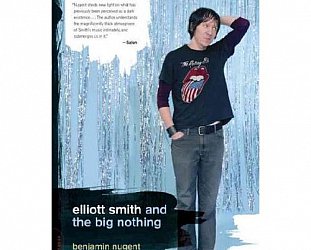
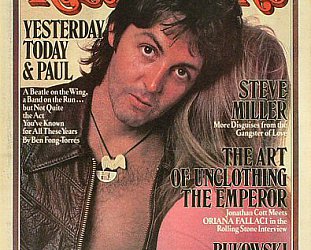

post a comment